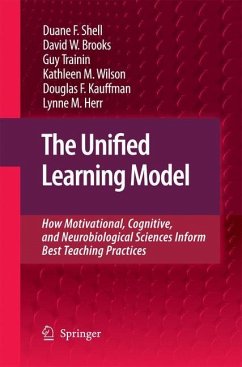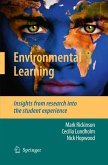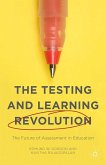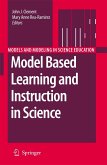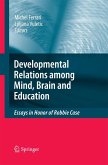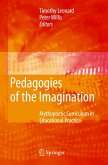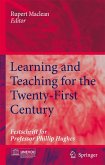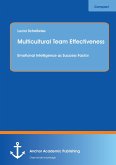This is a book about how humans learn. Our focus is on classroom learning although the principles are, as the name of this book indicates, universal. We are concerned with learning from pre-school to post-graduate. We are concerned with most bu- ness, industrial and military training. We do not address how infants learn how to speak or walk, or how grown-ups improve their tennis swing. We do address all learning described by the word "thought", as well as anything we might try to teach, or instruct in formal educational settings. In education, the words theory and model imply conjecture. In science, these same words imply something that is a testable explanation of phenomena able to predict outcomes of experiments. This book presents a model of learning that the authors offer in the sense of scientists rather than educators. Conjecture implies that information is incomplete, and so it surely is with human learning. On the other hand, we assert that more than enough is known to sustaina "scienti?c" model of learning. This book is not a review of the literature. Instead, it is a synthesis. Scholars and many teachers likely have heard much if not most or even all of the information we use to develop the uni?ed learning model. What you have not read before is a model putting the information together in just this way; this is the ?rst one.
From the reviews:
"This is an excellent book about how learners learn and behave in a classroom and how this understanding about learning could be put to use by teachers for effective teaching. ... the authors have successfully tied different ideas, concepts, and theories of learning into one model that is easy to understand even for those readers who do not have a background in education. I highly recommend this well-written and engaging book to all teachers, researchers, and students." (Sandhya N. Baviskar, The American Biology Teacher, Vol. 73 (4), April, 2011)
"The writers of The Unified Learning Model (ULM) intend their book to satisfy classroom teachers as well as teaching and learning researchers. The book is divided into chapters within two major sections, developing the model and applying the model. ... This book reinforced for me the value of modeling and practicing problem solving for students. ... It gives the reader a variety of things to contemplate about memoryand learning, the most challenging and enjoyable being the ULM itself." (Greg Diersen, The American Biology Teacher, Vol. 73 (4), April, 2011)
"This is an excellent book about how learners learn and behave in a classroom and how this understanding about learning could be put to use by teachers for effective teaching. ... the authors have successfully tied different ideas, concepts, and theories of learning into one model that is easy to understand even for those readers who do not have a background in education. I highly recommend this well-written and engaging book to all teachers, researchers, and students." (Sandhya N. Baviskar, The American Biology Teacher, Vol. 73 (4), April, 2011)
"The writers of The Unified Learning Model (ULM) intend their book to satisfy classroom teachers as well as teaching and learning researchers. The book is divided into chapters within two major sections, developing the model and applying the model. ... This book reinforced for me the value of modeling and practicing problem solving for students. ... It gives the reader a variety of things to contemplate about memoryand learning, the most challenging and enjoyable being the ULM itself." (Greg Diersen, The American Biology Teacher, Vol. 73 (4), April, 2011)

